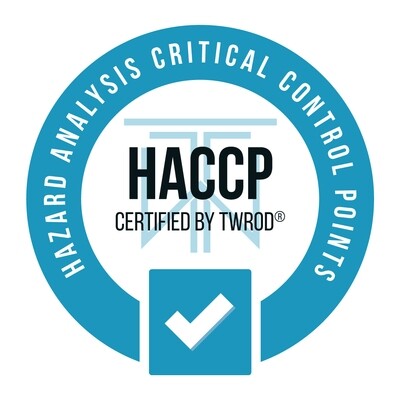
HACCP Hazard Analysis Critical Control Points (HACCP)
The HACCP Plan is a comprehensive document outlining food business principles, identifying hazards, establishing control points, and defining corrective actions. It begins with Hazard Analysis, supports scientific documentation, and includes SSOPs for maintaining a hygienic environment. It is based on prerequisite programs like Good Hygiene Practices and Good Manufacturing Practices. Implementing a HACCP system reduces foodborne illnesses and ensures product safety. It applies to all food chain organizations, ensuring consistency, quality, and dependable service.
- Identifying and controlling hazards throughout the food chain, significantly reducing the risk of foodborne illnesses, and ensuring the
safety of food products for consumers. - HACCP helps maintain consistent product quality and minimize variations that could impact safety.
- builds trust with consumers, who can be confident in the quality and safety of the food they purchase.
- HACCP certification is often a requirement for exporting food products to certain countries.
- Preventing foodborne illness outbreaks and product recalls minimizes financial losses and brand reputation damage.
- Improved operational efficiency and streamlined processes.
- The documented HACCP plan and verification procedures provide a
clear framework for food safety practices and facilitate audits by regulatory agencies or independent bodies.
